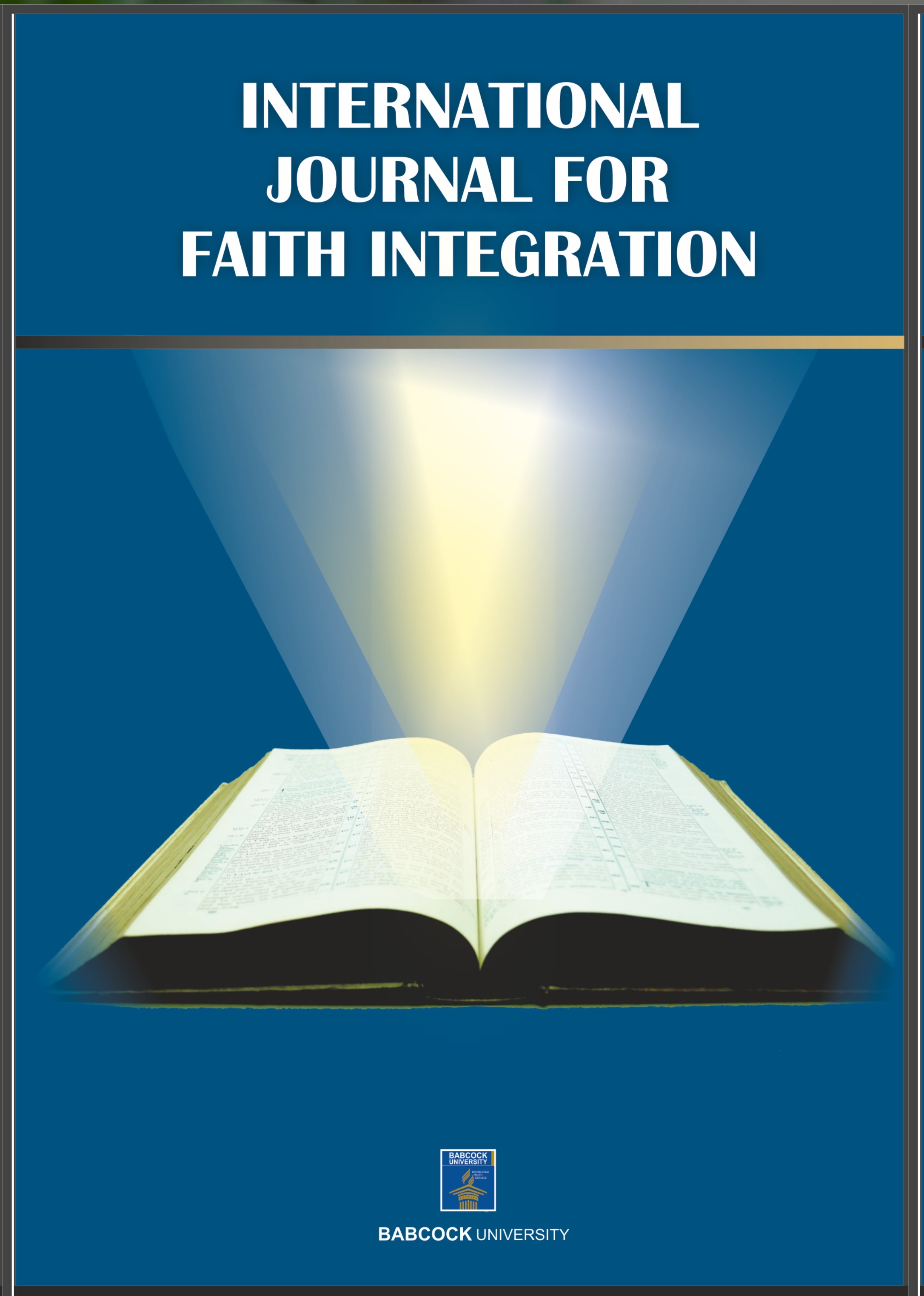
International Journal for Faith Integration Volume5 Issue2
Pentecostalism and Charismatic Movement in Nigeria: Situating the Place of Faith Complementarity and Integration
Samuel Olamide Adekoya and Afolorunso Olalekan Dairo | Pages:1-12Abstract
The rapid growth of Pentecostal and charismatic movements have reshaped traditional Christian practices while addressing some socio-political challenges. However, there exists a lack of understanding regarding how these movements reconcile diverse beliefs amidst doctrinal tensions and socio-economic influences. Traditional Christian faith is rooted in the teachings of Jesus Christ and the early Church, emphasizing biblical authority, sacraments, and moral principles. Pentecostalism and Charismatic movement derive from the teachings of Jesus Christ and the early Church, adopting biblical authority with emphasis on personal spirituality. This paper analyses the development and impact of Pentecostalism and charismatic movements on traditional doctrines, societal dynamics, and inter-religious relationships. The paper is anchored on the social control theory. It was concluded that Pentecostalism promotes spiritual renewal but poses challenges to doctrinal unity in Nigerian Christianity. Recommendations include: (1) Church leaders: provide theological training to uphold doctrinal integrity; (2) Policymakers: establish frameworks for religious tolerance to reduce conflicts; (3) Scholars: explore Pentecostalism's socio-political impacts; (4) Churches: tackle societal challenges, and (5) Educators: integrate Christian faith into curricula for better understanding. These proposals aim to strengthen theological understanding, social harmony, and scholarly dialogue.
 Full Text
Full Text